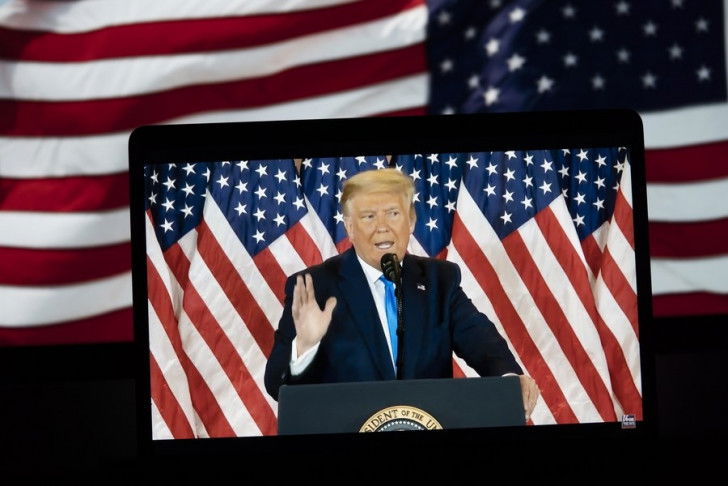America
Trump vows not to concede; Congress faces first objection to Biden's election

New York, Jan 7
Minutes after the Congress joint session took up the final stage of the confirmation of Joe Biden as the next President and Kamala Harris as the Vice President, it adjourned after President Donald Trump's supporters objected to the electoral college votes from Arizona State.
The Senate and the House of Representatives began to separately consider the objections.
Before Congress met for the joint session, President Donald Trump vowed he would "never concede".
Heightening tensions, he told a rally of his supporters in Washington, "This year, they rigged an election. They rigged it like they've never rigged an election before."
Washington has activated the National Guard to help maintain law and order while many businesses have put wooden boards on their windows in case there is violence from the supporters and opponents of Trump who have massed around the city.
Vice President Mike Pence presided over the joint session of Congress called to count the votes of the electoral college which elected Biden and Harris last month and approve the tally to ensure the transfer of power on January 20.
Pence has turned down Trump's requests to block the certifying of the electoral college's votes saying in a statement before the session that he did not have the constitutional authority for it.
As the electoral vote from the states were counted in alphabetical order and announced, the session hit a roadblock when Arizona came up and Trump's supporters raised objections to it.
While the time allotted for the discussions is two hours in the House, the process could drag on if that time is allowed for each of the states for which objections have been made. The Senate can set its own time limits and formats for dealing with the objections.
The joint session will reconvene after the two legislative bodies finish dealing with the objections to continue the process of certifying the electoral college votes -- till the next objection.
The joint sessions to confirm the electoral college votes usually complete their task in a short time, but this time the process can run for several hours because of the many challenges, even though the final outcome is not in doubt.
Trump and his supporters have failed in over 50 cases they brought in courts at various levels alleging electoral fraud and they view this as the last chance to question the legitimacy of the election.
The challenges from Trump's supporters are only meant to be symbolic and disruptive because the Democrats have a majority in the House of Representatives and although for now the Republicans have a majority in the Senate, the party's leaders in the body have refused to back Trump's supporters.
The US presidential elections are conducted indirectly with the voters electing members of the electoral college who would vote for the President.
Biden won 306 electoral college votes, in addition to getting 81.2 million popular votes to Trump's 232 electoral college votes and 74.2 million popular votes.
Trump won the 2016 election by getting a majority in the electoral college, where the votes allocated to proportionately to states, despite Hillary Clinton getting more popular votes.
The challenge to election is from a small group of Republican members of Congress led by Republican Senator Ted Cruz.
Many of the party's leaders starting with Pence and Mitch McConnel, the Republican leader in the Senate, have dissociated themselves from the tactic.







































